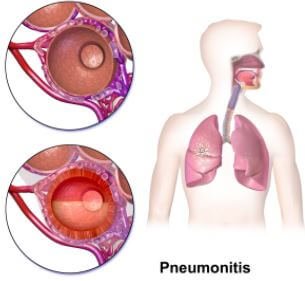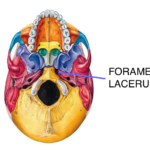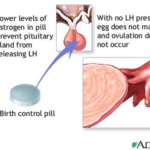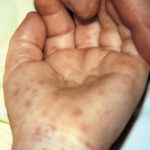What is Pneumonitis?
Pneumonitis is a condition where your lung tissue becomes inflamed. This condition is a form of allergic reaction. It occurs when substances irritate your lung air sacs. People who are sensitive to irritants usually have a reaction that may lead to pneumonitis. Another name of pneumonitis is hypersensitivity pneumonitis. This condition is treatable but when left untreated, it can cause permanent damage and scarring of your lungs1.

Causes of Pneumonitis
A number of causes are responsible for pneumonitis such as1, 2, 3
Irritants
Irritants are the most common causes of inflammation in your lungs. Substances you inhale may irritate the air sacs causing pneumonitis. Exposure to irritants triggers your immune system to react towards them causing inflammation in your lungs. This inflammation prevents oxygen to move smoothly through the air sacs into your bloodstream.
Examples of irritants that can cause inflammation in your lungs are bacteria, fungi, chemicals and mold. These irritants are found in the environment such as wood dust, hot tubs and in animal fur.
Medications
Certain medications may cause pneumonitis when taken in large dosages. Antibiotics, chemotherapy drugs and drugs for restoring heart rhythm can inflame your air sacs.
Chest treatment methods
Treatments that are used to treat chest problems can also damage your lungs causing inflammation. One such treatment method is radiation therapy which uses high energy radiation to treat chest problems such as tumors. This energy can penetrate your lungs and cause damage which can lead to inflammation.
Risk Factors for Pneumonitis
There are a number of risk factors that can elevate your chances of developing pneumonitis. They include1, 4:
Environment
You are at a greater risk of developing pneumonitis if your work in an environment where you are exposed to irritating substances. For instance a famer is usually exposed to hay, grain and straw which contain bacteria, mold and fungi.
Molds, fungi and bacteria can be found in hot tubs, air conditioning system and heating system. People who use these things are exposed to molds which cause inflammation in the lungs when they are inhaled.
Occupation
Your occupation or profession can make you vulnerable to irritants that cause inflammation in your lungs. For example, people in the following professions are at a greater risk for pneumonitis:
- Plastic manufacturers
- Veterinary workers
- Animal breeders
- Poultry and bird handlers
You can be exposed to molds and fungi at your home even if you do not belong to the above profession. When you are exposed to irritants, it does not mean you will get pneumonitis. Research has shown that many people have been exposed to irritants but did not get pneumonitis.
Genetics
Genes can also make you develop pneumonitis. If you come from a family with a history of pneumonitis, your risk of developing this condition is higher.
Cancer treatment
Cancer treatment methods such as chemotherapy and radiation can increase your risk of developing pneumonitis if you use them.
Age
Pneumonitis can affect people of all ages. But it is mostly diagnosed in people who are between 50 to 55 years of age.
Symptoms of Pneumonitis
The earliest symptom of pneumonitis comes within six hours of inhaling irritants. You may feel like you have flu or any respiratory diseases which is accompanied by symptoms such as2:
- You might have fever, headache and chills. You may also experience pain in your joints and muscles.
These symptoms may disappear if you are exposed to irritants again. This is called acute pneumonitis. But continued exposure to the irritants can make you develop chronic pneumonitis which is a condition that lasts for a long period. Research has shown that at least 5% of the populations in the world develop chronic pneumonitis.
People with chronic pneumonitis exhibit the following symptoms:
- They have a dry cough and feel tightness in their chest. People with this condition get tired easily and have no appetite for food. They also experience weight loss.
When to Seek Medical Help?
You must seek medical assistance if you notice the following symptoms: shortness of breath, weight loss and tightness in your chest1.
Diagnosis
If you suspect to have pneumonitis, you should visit a doctor or pulmonologist. A pulmonologist is a professional who treats lung illnesses. First, your doctor asks you any substances or chemicals you might have been exposed to at home or work. After this, a physical exam will be conducted to find out whether there are problems in your lungs.
Your doctor will use a stethoscope to listen to your lungs. The sounds might be cracking or other unusual sounds in your lungs.1, 2
Your doctor may conduct the following tests to confirm that you have pneumonitis:
Blood tests
Blood tests can be done to check for antibodies in your blood against molds, fungi and dust. It can also be used to find out if you have an immune system reaction. Your doctor collects your blood and takes a sample and analyses it in the laboratory for antibodies.
Chest x-rays
Your doctor conducts x-rays on your chest to find out problems in your chest and lungs.
CT scan
CT scan can be used to take images of your lungs to determine if they are problems.
Biopsy
Your doctor may conduct lung biopsy to find out the cause of inflammation and scarring in your lungs. In this procedure, you will be given a general anesthesia to reduce pain and make you comfortable during the operation. Your doctor removes a tissue from your lungs and tests it for inflammation and scarring.
Treatment
There are several treatment options that can be used to ease symptoms of pneumonitis. They include2, 3:
Medications
Some medications can be prescribed to alleviate symptoms of pneumonitis such as bronchodilators to help relax your air passage and make you breathe properly. Corticosteroids such as prednisone are recommended to decrease inflammation in your lungs. This type of drugs can increase your risk of infection and make you gain weight.
Oxygen therapy
If you have problems with breathing, oxygen therapy will be suggested to help you breathe properly.
Lung transplant
In case your lungs are severely damaged, you may undergo lung transplant to enable you breathe well. You will wait for an organ transplant that matches with your donor for transplant to occur.
You can prevent pneumonitis by avoiding exposure to irritants. Though it is not possible to limit exposure to all irritants, you can wear face mask when handling molds and chemicals.
Reference List
- Pneumonitis. https://www.healthline.com/health/pneumonitis#treatment7
- Pneumonitis. https://www.mayoclinic.org/diseases-conditions/pneumonitis/symptoms-causes/syc-20352623
- https://www.medicalnewstoday.com/articles/319451.php
- Pneumonitis – https://www.belmarrahealth.com/pneumonia-vs-pneumonitis-differences-in-symptoms-causes-and-treatment/






